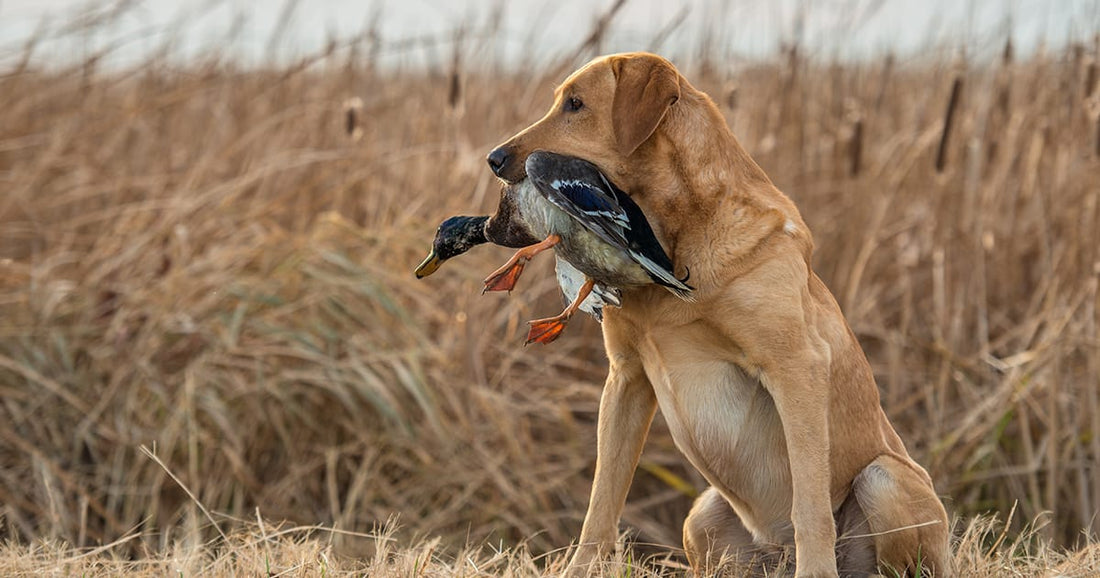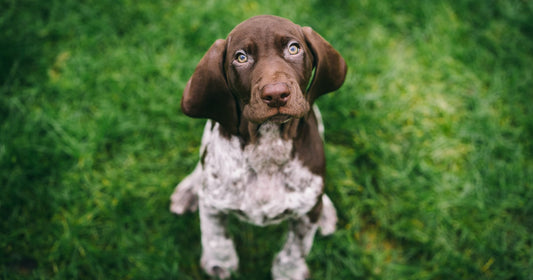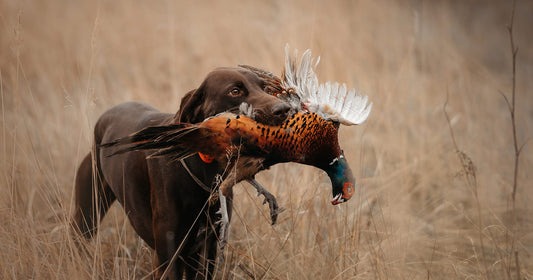When it comes to bird dogs, delivering game in good condition is more than just a preference, it’s a necessity. A dog that retrieves birds must do so gently, ensuring the bird is suitable for the dinner table. Crushing, chewing or damaging the bird while retrieving it is known as “hard mouth,” and it’s a behavior that hunters and trainers work hard to prevent.
Some hunting dog breeds are naturally inclined to retrieve with care as they’ve been bred for generations to bring back game without damage. Their genetics and training history make them less likely to develop hard mouth tendencies. Some of these breeds include Retrievers, German Shorthaired Pointer, Brittany, Vizsla and Wirehaired Pointing Griffon.
Puppy Training to Avoid Hard Mouth
As with all aspects of hunting dog training, preventing hard mouth starts early. Ideally, you should begin when your puppy is around three to four months old—before they ever come into contact with birds.
To start, gently place your fist in your puppy’s mouth once a day. If their teeth are sharp, wear a thin leather glove. If the puppy bites down, gently push your fist deeper in their mouth. This encourages them to release pressure. Repeat this until your hunting puppy no longer bites. At the same time, enroll your puppy in a basic obedience class. Structured training not only helps prevent behavioral issues but also lays the groundwork for more advanced bird dog training.
Once your puppy is comfortable with basic obedience, begin short retrieving drills in the yard by using a small dummy and keep your puppy on a lead. Start with short throws (5-10 feet) and immediately guide them back to you after they pick up the dummy, not allowing any chewing on the dummy. You can later transition them to frozen game birds as they are less likely to bite down on a frozen bird, helping reinforce gentle retrieval.
Common Mistakes That Lead to Hard Mouth in Hunting Dogs
Even with a solid foundation, it’s easy to undergo your progress with a few common mistakes. Do not:
- Play tug-of-war: This game encourages rough handling and can lead to hard mouth.
- Snatch birds: Jerking a bird from your dog’s mouth can create a sense of competition, making them more likely to clamp down. Instead, use clear commands like “drop” to release the bird.
In addition, if you’re running two dogs, be cautious. Only release one dog for the retrieve after a point. Allowing both dogs to retrieve can lead to competition—and hard mouth can develop quickly in those situations.
Correcting Hard Mouth in Bird Dogs
If your dog does develop a hard mouth, don’t panic—but do seek professional training. There are two primary methods for correcting the behavior:
- Force Fetch Training: A structured method that ensures a prompt and rapid retrieve with no post-shot damage to the bird.
- E-Collar Training: When used correctly, this can reinforce gentle retrieving. However, improper use can harm your dog’s progress.
Both methods require experience and precision. If you’re new to training bird dogs, consult a professional to ensure the best outcome for your companion.
Preventing hard mouth is all about early, consistent training and understanding your dog’s instincts. With the right approach, your bird dog will become a reliable hunting partner—bringing back game just the way it should be.




